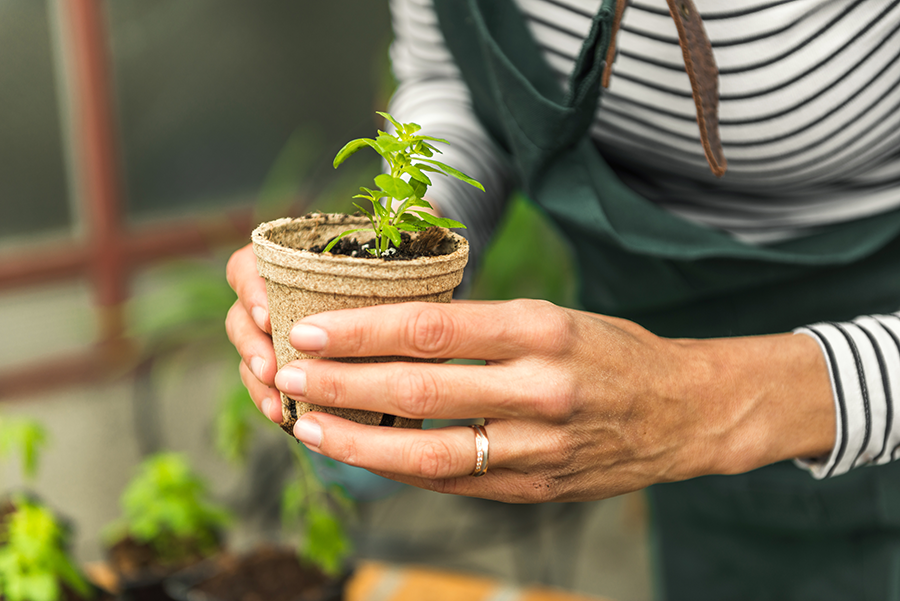Are biodegradable pots also considered compostable?

Today, if you’re in the market for organic herbs you can easily grow on your kitchen counter for year-round use, your local supermarket or health food store is a good place to start. Chances are, they’ll be sold in biodegradable pots you can effortlessly place into a larger container of your choice without ever disturbing the fragile root system.
As you’re standing on the checkout line pondering the savory dishes you’ll make with fresh thyme and rosemary, a question comes to mind. What’s the difference between your biodegradable pots and one that’s compostable?
A good question, which is not always easily answered.
In society today, the words “biodegradable” and “compostable” are often used interchangeably and incorrectly when talking about products and how they decompose and ultimately impact the environment.
The internet has an endless stream of confusing definitions regarding the differences between what’s biodegradable vs. compostable, from bloggers and scientists alike. But we appreciate this easy-to-digest version from Popsugar.com which sums it up nicely.
“While biodegradable items refer to any material that breaks down and decomposes in the environment, compostable goods are organic matter that breaks down to become a pile of nutrient-rich soil.”
Yes, what’s compostable is also biodegradable. But what’s biodegradable is NOT always compostable.
The reason for this is provided by gardeningknowhow.com:
“Compost is the black dirt, or ‘black gold’ as we like to call it, created from the decomposition of the organic matter that we contribute, whether that be leftover food or yard waste. Compost is considered finished when we are left with the semblance of a rich organic soil where our individual contributions are no longer distinguishable.”
In fact, the US Composting Council® has strict guidelines (by state) about composability. At this time, biodegradable guidelines do not exist from a governing body.
So, while your biodegradable pots will certainly decompose into the soil over time (typically in a year or less depending on their composition) it’s not considered compostable unless it adds nutrients back into the soil.
Still, you can rest assured that your biodegradable pots (if created from a paper slurry) are not leaching harmful toxins into the earth and can be safely left in your planting beds or flowerpots to decompose naturally, thus eliminating waste in our landfills.
Fiber Containers
HC has two sustainable solutions that are designed with the needs of growers, retailers and gardeners in mind.
Learn More

 Find the Perfect Planter
Find the Perfect Planter